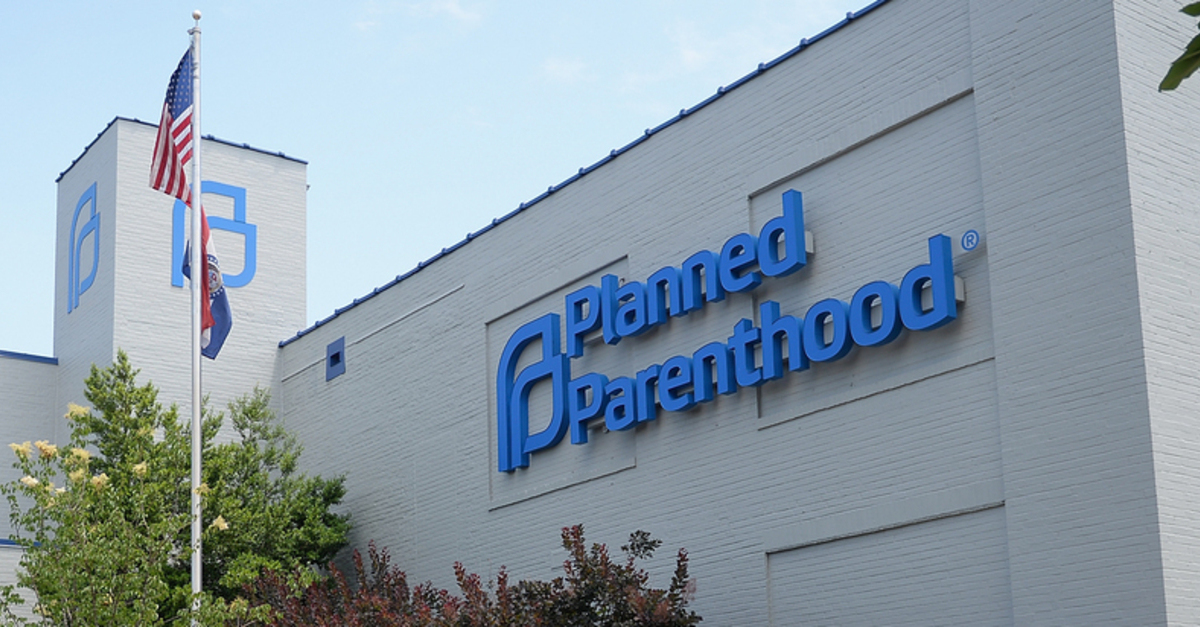
A President Donald Trump-appointed district court judge sided with Planned Parenthood and struck down a Tennessee abortion statute on Tuesday. The law would have required abortion providers to tell patients that “chemical abortions” are “reversible.”
Planned Parenthood prevailed at this preliminary stage on the grounds that the notifications required by the law were, at least in part, false.
Tennessee Code Annotated Section 39-15-218 requires doctors and healthcare facilities to communicate a particular message to women who have decided to undergo an abortion.
The statute specifically addresses so-called “chemical abortions,” that would be performed, “by sequentially administering two drugs: mifepristone and misoprostol.”
One portion of the statute requires any private office, ambulatory surgical treatment center, or other facility or clinic, that has performed more than 50 elective abortions during the previous calendar year to, “conspicuously post a sign” that contains the following message:
Recent developing research has indicated that mifepristone alone is not always effective in ending a pregnancy. It may be possible to avoid, cease, or even reverse the intended effects of a chemical abortion utilizing mifepristone if the second pill has not been taken. Please consult with a healthcare professional immediately.
The signage must be posted “in each patient waiting room and patient consultation room used by patients on whom abortions are performed,” or, “in each patient admission area used by patients on whom abortions are performed,” depending on the specific location in question.
Another portion of the law requires physicians to make specific statements to any woman who will receive an abortion. Those statements are: “(1) It may be possible to reverse the intended effects of a chemical abortion utilizing mifepristone if the woman changes her mind, but that time is of the essence; and (2) Information on and assistance with reversing the effects of a chemical abortion utilizing mifepristone is available on the department of health website.”
Doctors who violate the law would have committed a Class E felony, punishable by up six years in prison and a fine of up to $3,000. Hospitals or clinics that fail to post the required signage face a $10,000 penalty. Furthermore, the statute creates a cause of action such that a patient or her parents could sue a non-compliant doctor.
Planned Parenthood and a number of other abortion providers sued, saying the law violates both their First and Fourteenth Amendment rights. The First Amendment claim is that the Tennessee statute unlawfully compels them to engage in speech that is untruthful and misleading. The Fourteenth Amendment claim is that the requirement unlawfully singles out abortion providers and patients for adverse treatment not imposed on any other medical providers or patients.
The notifications demanded by the statute, claim the plaintiffs, “is wholly unsupported by reliable scientific evidence and that has been rejected by the field’s trusted medical authorities, including the American Medical Association (AMA) and the American College of Obstetricians and Gynecologists (ACOG).” In their complaint, plaintiffs filed a number of expert declarations who stated that there is no credible evidence that a chemical abortion can be “reversed” by administering high dosages of progesterone after the patient has taken mifepristone, but before taking misoprostol.
Judge William Lynn “Chip” Campbell Jr., a 2017 Trump appointee, refused to take a position on the truth or falsity of the statement that abortions can be “reversed,” writing, “The Court is unable to assess fully the competing expert opinions as to whether the mandated message is ‘truthful and not misleading,’ in the absence of the experts’ testimony, adduced through direct and cross examination.”
That assessment must await the upcoming preliminary injunction hearing at which the testimony of the expert witnesses may be offered by the parties.
However, Judge Campbell called Tennessee out for including at least one falsehood in its mandatory messaging. Writing, “Nevertheless, the Court does not need to await the hearing to determine that another aspect of the mandated message is ‘misleading.’” The judge focused on the requirement that physicians tell patients to check the Department of Health Website.
It isn’t actually true, reasoned Campbell, that the Department of Health website would have relevant information for women seeking abortions. Under Tennessee state law, the Department of Health has “up to 90 days in which to publish information.” Because state law allows for a “built-in delay,” abortion providers cannot accurately tell patients that “information on and assistance with reversing the effects of a chemical abortion” is available online.
On that basis, Judge Campbell sided with Planned Parenthood and temporarily blocked the Tennessee law from going into effect. The order expires on October 13, when a full hearing will be conducted on the matter.
[image via Michael B. Thomas/Getty Images]